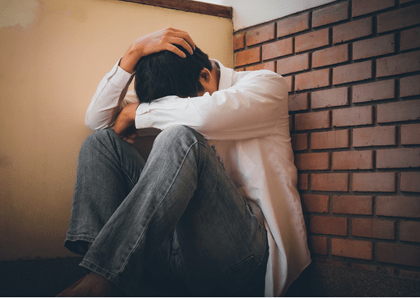Mental health: Ifran’s story

Seventeen-year-old Irfan lived through a childhood marked by hardship, trauma and addiction. Growing up in one of Karachi’s most underprivileged areas, he and his family faced constant financial struggles. The poverty and instability created deep challenges.
At just nine years old, Irfan experienced physical abuse - an incident that left him emotionally scarred. Withdrawn and hurt, he drifted away from his family and sought solace among peers who quickly introduced him to cigarettes and later drugs. What began as an escape from pain soon became a dangerous habit. By his early teens, Irfan was spending most of his time on the streets, exposed to crime and drugs. For nearly three years, he lived in this cycle, selling drugs, using substances and surrounding himself with older men involved in risky behaviours.
His family watched helplessly as addiction consumed him, until they sought professional help. He was admitted to a mental health programme supported by the British Asian Trust, which marked the turning point. Irfan endured detoxification, where he faced the painful symptoms of withdrawal, but for the first time, he was supported by a team who understood his struggle.

Therapy became central to his recovery; individual counselling helped him confront his childhood trauma, while group sessions gave him a sense of belonging and understanding. Family therapy slowly rebuilt bonds of trust, allowing him to reconnect with those who loved him most.
The road was not easy. At first, Irfan struggled with anger, cravings and resistance to authority. But with persistence, he learned emotional regulation, self-discipline and responsibility. He found the structure, the support and the opportunity to focus on his growth. He began to take pride in his progress by repairing relationships, improving his interpersonal skills and showing consistent respect for staff and peers.
Today, Irfan is a motivated young man pursuing computer education and excelling academically. He participates in positive activities, has developed maturity and demonstrates a clear commitment to staying drug-free. He continues to attend Narcotics Anonymous meetings and therapy sessions, determined to maintain his recovery.
Irfan’s story shows how early trauma, poverty and unsafe environments can push children towards addiction, but also how comprehensive mental health support, combined with family involvement and structured care, can give children the chance to reclaim their lives. His resilience and determination prove that even after years of struggle, hope and healing are possible.
In Pakistan, street children, often with broken family bonds, are at high risk of experiencing trauma and abuse, including physical, emotional and sexual abuse. There is also a lack of awareness and support for those who suffer from mental health issues as a result of their experiences. Our Mental Health programme helps to identify and address mental health issues of street children to provide rehabilitation counselling and therapy services and create a safe and supportive environment for them. Additionally, we also work to sensitise child protection officers and members of the legal fraternity towards the basic principles of acceptance, communication, non-judgemental attitudes, self-control and empathy to change their attitudes when dealing with these children.
*Names changed for confidentiality purposes. Images are not of any individuals mentioned.
